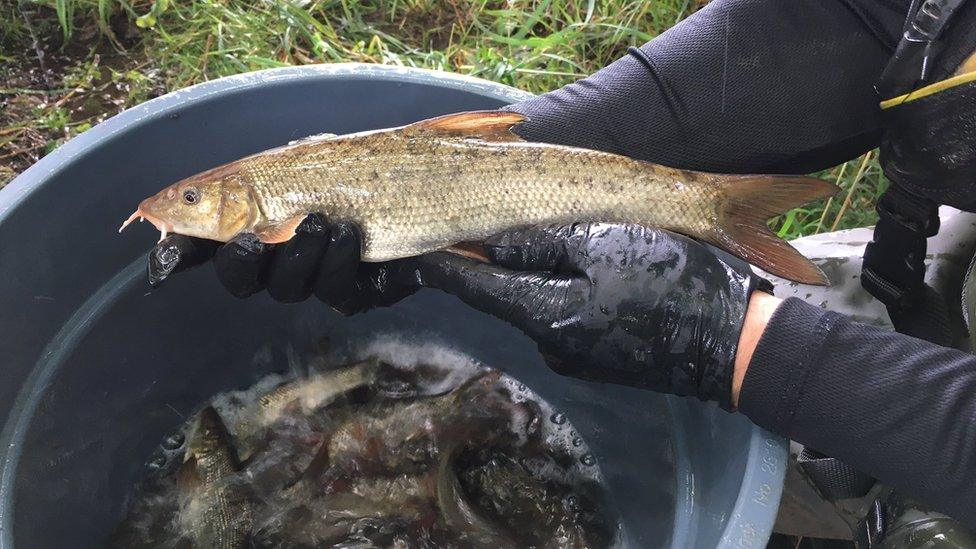Thousands of fish released to restock Devon river
- Published
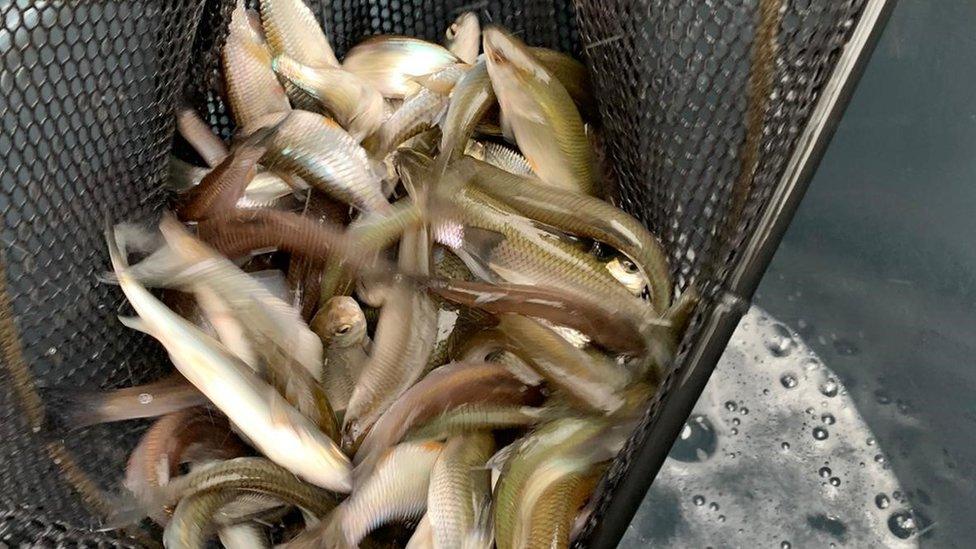
More than 6,000 fish, including dace, roach and chub, were released
More than 6,000 fish have been released into a river to help restock after a pollution incident.
For the third year running, the Environment Agency said it had restocked the River Culm in Devon following pollution in 2019.
The fish from the National Fish Farm near Nottingham were released this week.
In the New Year, fisheries across Devon and Cornwall will be stocked with thousands more fish.
Restocking is done where numbers are low, have been depleted following a pollution incident or to create new fisheries and opportunities for anglers.
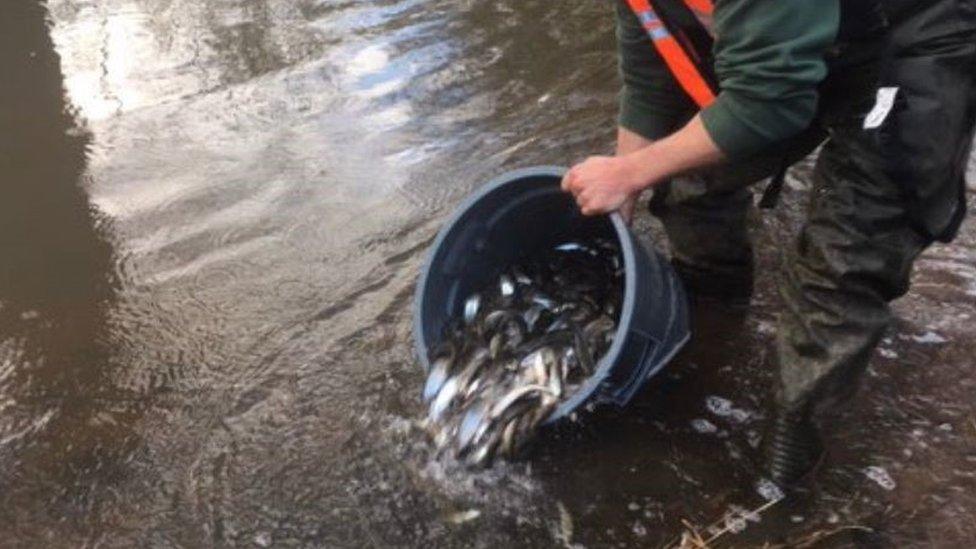
Restocking works best in winter, the Environment Agency said
More than 9,000 fish, including tench, bream, crucian carp, roach and rudd, will be introduced into a number of fisheries across Cornwall to enhance angling opportunities and to help fisheries to have sustainable and healthy fish stocks.
Some Devon angling clubs will also be receiving fish.
Every year, the Environment Agency's Calverton Fish Farm near Nottingham breeds coarse fish to be released into rivers and still waters across England to help boost fish populations.
The agency said restocking occurs in winter because water temperatures are lower and this minimises any stress on the fish during the stocking process.
Callum Underhill, Environment Agency fisheries officer, said: "Devon and Cornwall has a variety of excellent fishing opportunities for people of all ages and abilities to enjoy, from rivers and canals to still water venues.
"Sometimes they can benefit from a helping hand by adding excellent quality fish from our National Fish Farm."
The work of the National Fish Farm is funded by income from rod licence fees.

Follow BBC News South West on Twitter, external, Facebook, external and Instagram, external. Send your story ideas to spotlight@bbc.co.uk, external.
- Published21 December 2021
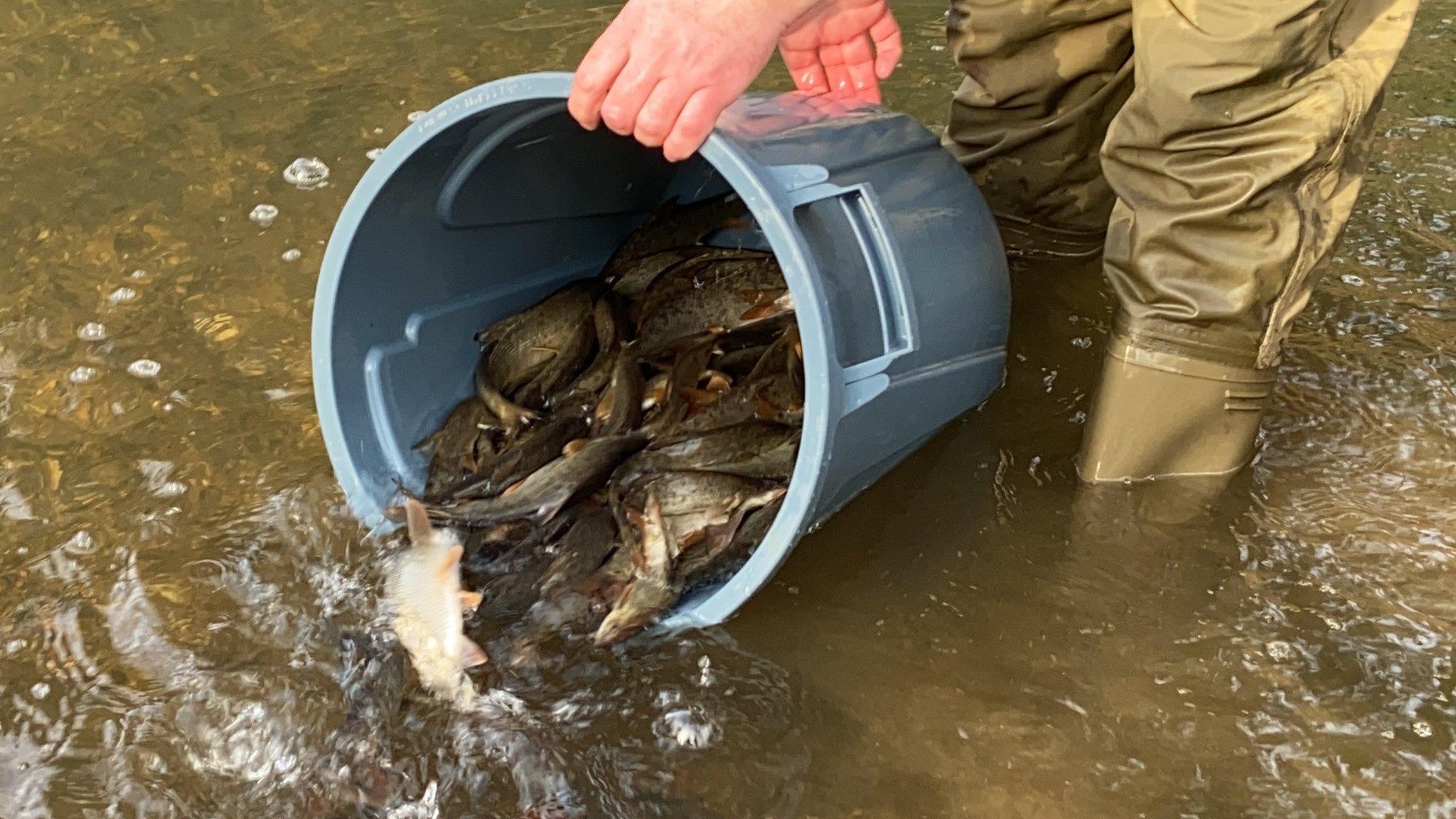
- Published11 July 2021
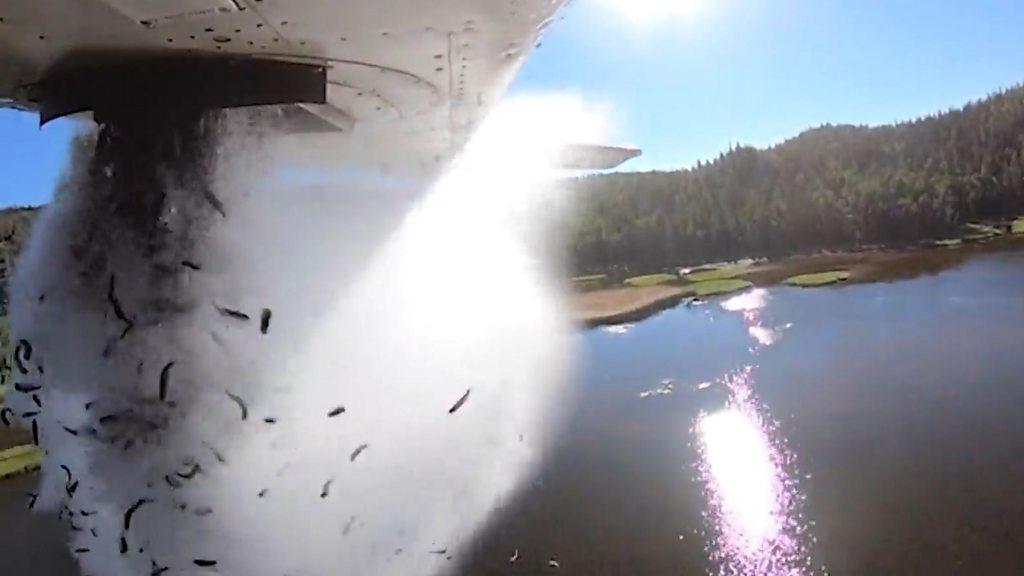
- Published22 August 2020
